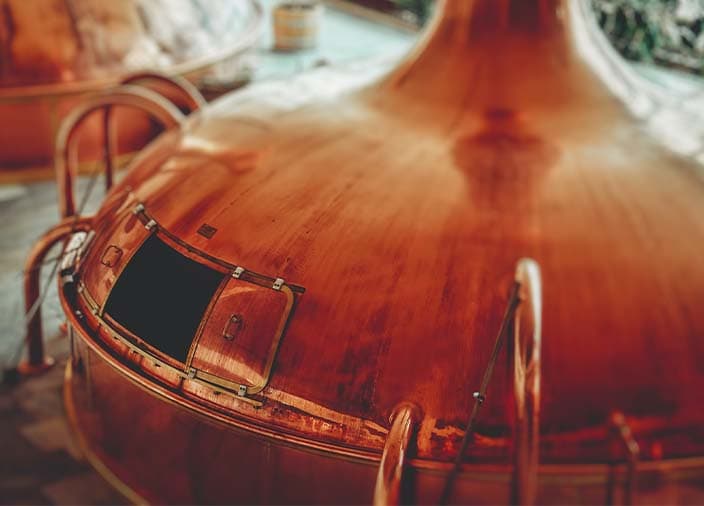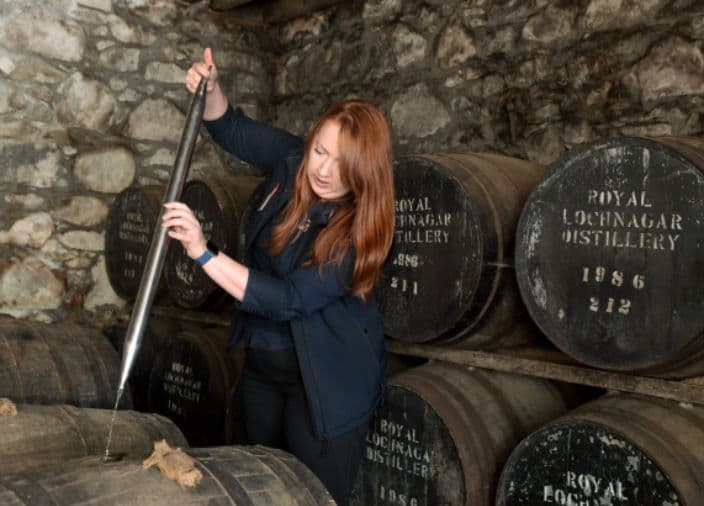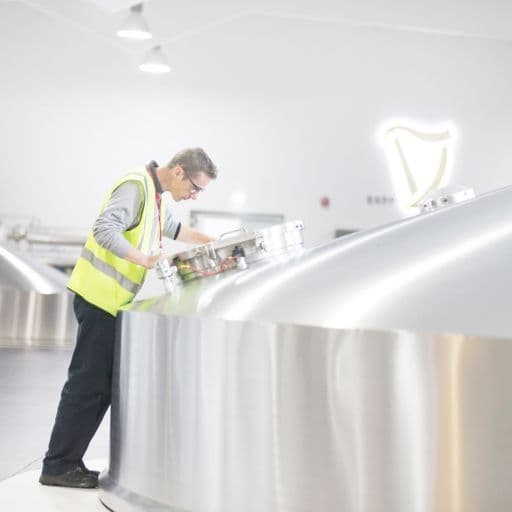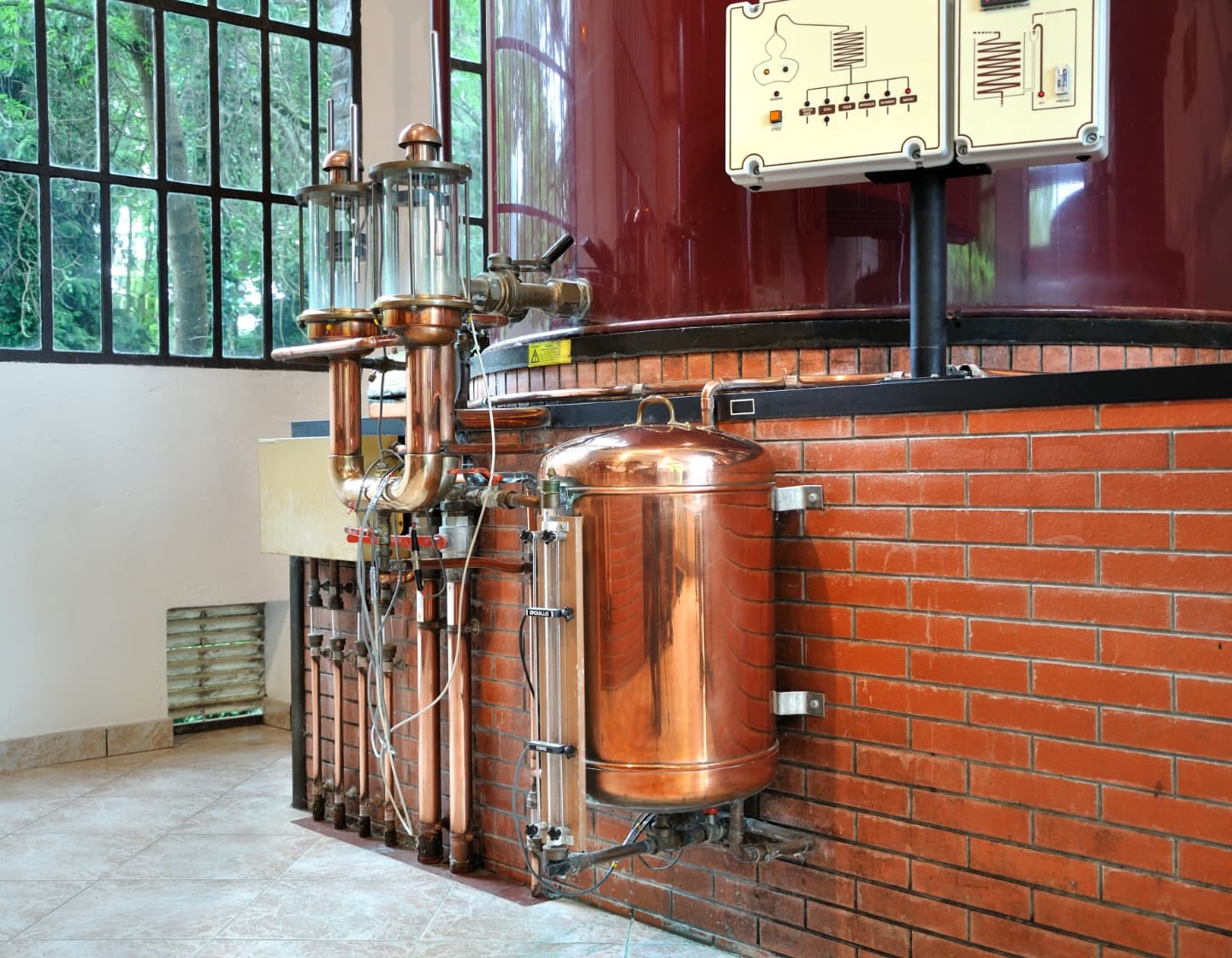Blogs & Inspiration
How a Traditional Distillery Became a Sustainability Role Model
Join distillery manager and passionate sustainability champion, Sean Phillips, as he shares how he has reduced the carbon footprint of the distilleries he manages.
Author: Sean Phillips, Diageo Distillery Manager
Estimated reading time: 7 minutes
Make Your Business More Sustainable
A successful bar is a sustainable bar. From water usage, to lighting and heating, Sean outlines practical advice on how - and why - any business in the industry can lower its carbon footprint. Check out the full Q&A to get expert industry insight.
Thanks for joining us, can you tell us more about who you are and what you do?
I’m Sean Phillips and I work as the Distillery Manager for Royal Lochnagar and Strathmill Distilleries. I look after their day to day running with my team.
How long have you been working at Royal Lochnagar for?
I have been at Royal Lochnagar for more than five years, but I have been working for Diageo for over 35 years.
I first started off as a gin distiller and became a gin master distiller for Gordon’s and Tanqueray. I’ve also managed several whisky sites, including Mortlach and Glendullan Distilleries.

Could you tell us a little bit about the history of Royal Lochnagar?
The distillery was built in 1845 on land known as Lochnagar, by a gentleman known as John Begg. One part of the land was a farm, and the other was the distillery.
Prince Albert and Queen Victoria were invited to the distillery by John Begg in 1948, it was an innovative distillery for its time and Prince Albert was very into engineering so he was very excited about the trip.
They did a tour and got to drink the whisky, and the very next day, Lochnagar was given a royal warrant by Queen Victoria, and from then on was known as Royal Lochnagar.
The distillery has survived a fire and multiple upgrades and refurbishments. Most recently the brand home was created in 1998 and the old barns were turned into coffee shops. Royal Lochnagar is still a traditional distillery, using a lot of traditional techniques like an open top mash tun.
Quite a lot of our operation is manual and hand crafted. Our staff manually mash and smell the product to ensure it is top quality. Same with the distilling, right through to filling the casks directly, so it’s all still very traditional here.
How do you integrate sustainability into distilling practices at Royal Lochnagar?
Some of the main things that have a big impact on us are energy and water usage. So, what we try to do is minimise the amount of water we use to make one litre of alcohol. Ideally, you want to get down to approximately nine litres of water to produce one litre of alcohol.
Currently, we are operating at around eleven litres of water for one litre of alcohol, so we are always looking at what we can do to reduce the amount of water. Can we reduce the number of litres we use for cleaning? Change the way we heat things up or can we recover that heat to heat something else up?
You constantly have to look to see if there are any quick wins. In 2018, we changed the fuel used in our boiler to generate the steam to biofuel. This biofuel is the by-product of rapeseed oil and helps us remain carbon neutral as we are not putting any noxious gases in the atmosphere.
You can’t just stop there though; look at your energy usage. We are on a program at the moment changing all our current lighting to LEDs. It is a little more expensive to install, however, it lasts longer, is more energy efficient and it is completely maintenance free.
Just today, we have identified pipes and some of our tanks that could be more efficient. We are going to replace these to ensure that we are maintaining heat. These small steps mount up to bigger things, there are things everyone can do to improve sustainability.
Do you think sustainability is important for the drinks industry?
For me, people want to know how we are producing our products, what we are doing to protect the environment, what things we are using that makes our process sustainable. We ensure that the products we use are sustainable, down to what the farmer is doing to grow that barley, for example.
It is important for the whole chain in the drinks industry.

Have you come up against challenges when bringing in more sustainable practices?
Probably the biggest challenge is brainstorming what we can do. We must think about how far we can take initiatives.
We have to be very careful that what we do doesn’t impact the quality of our whisky and the character of the malts, finding that balance can be challenging.

What advice would you give other businesses that are trying to bring in sustainable practices?
My biggest piece of advice would be to do a loss and waste analysis. Look at everything you do and think about any quick wins. A simple thing for us was using light sensors. You walk into an area and the place lights up, but it is only on for a certain amount of time. You don’t need lights burning all the time. They’re not that expensive but they’ll have a big effect over the course of a year - they can also be put on a timer which can really help.
Think about your water. How much water are you using? This includes cleaning - how much water are you using to clean and how are you using it? Heating up too much water wastes energy.
How much water is being used in your toilets and can this be sourced in other ways like through waste ice? Temperature is something as well. Ensure that during times that people aren’t in your workspace that the heating is off. Look at different times of year as well to see where you can reduce heat usage.
There are bigger things you might want to introduce that might be a little more expensive but there will be a long-term payback. Implement the quick wins though and you will see changes!
Watch Now: Royal Lochnagar Becomes Low Carbon
Sean Phillips tells us the story of Royal Lochnagar on its progress to reach net-zero carbon in direct operations by 2030.
Key Takeaways
- Go for the quick wins first and don’t be afraid to invest – it will save you in the long run.
- Look at your energy use and what you can do to reduce it, including lighting and heating.
- Look at how much water you’re using and if there are alternative methods you could employ to reduce consumption.
- Get together as a team and brainstorm ways to prevent loss and waste.
- Look at your suppliers and their sustainable practices for inspiration.
Become a member of Diageo Bar Academy for today for exclusive access to our free menus, recipe cards, courses, and more!
